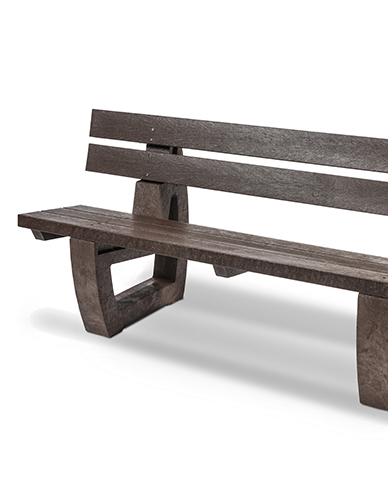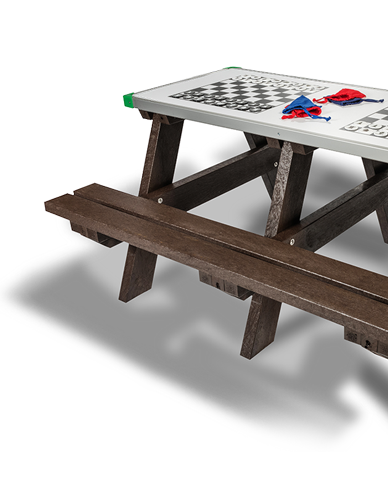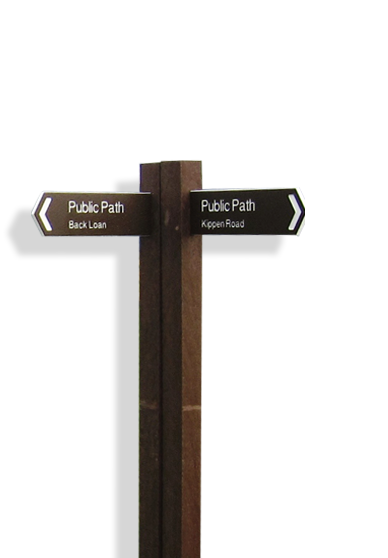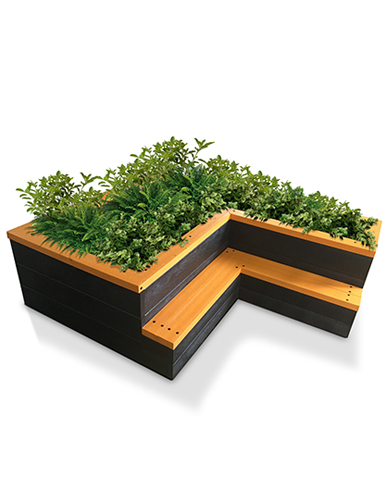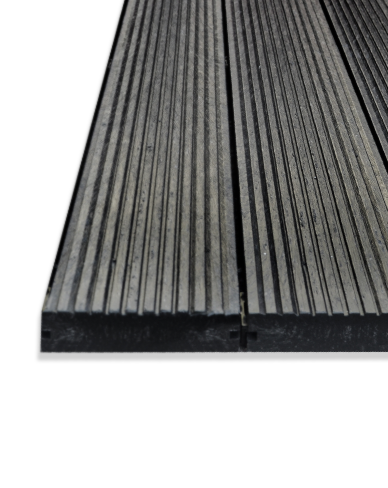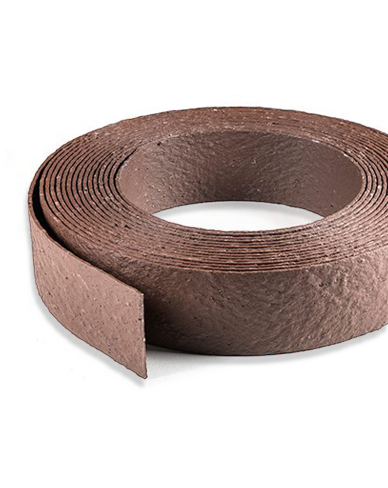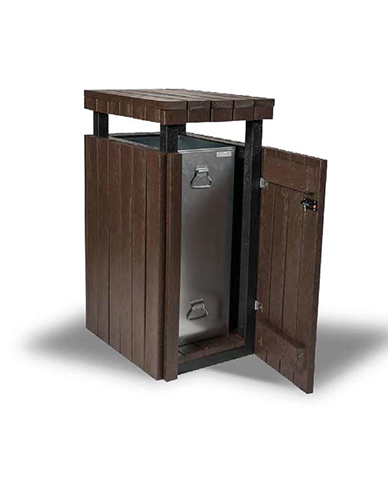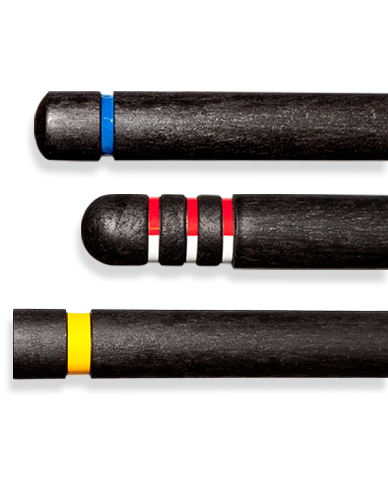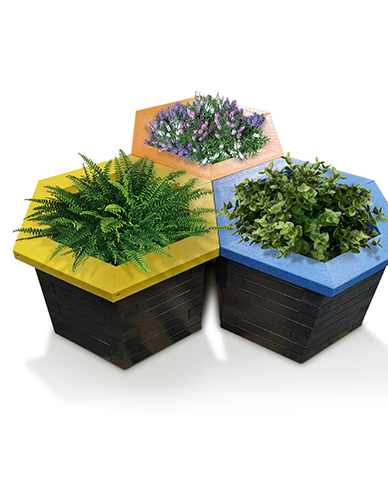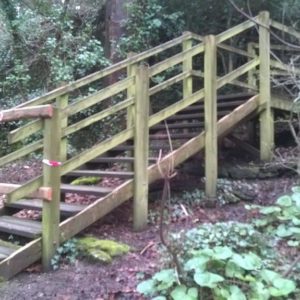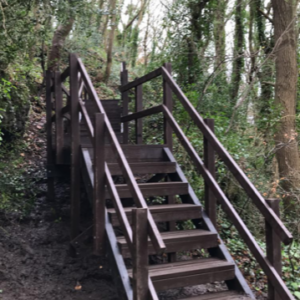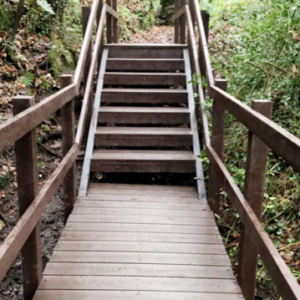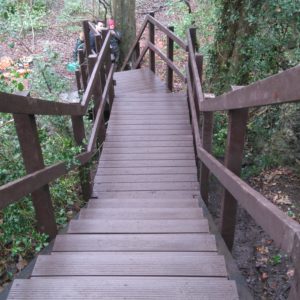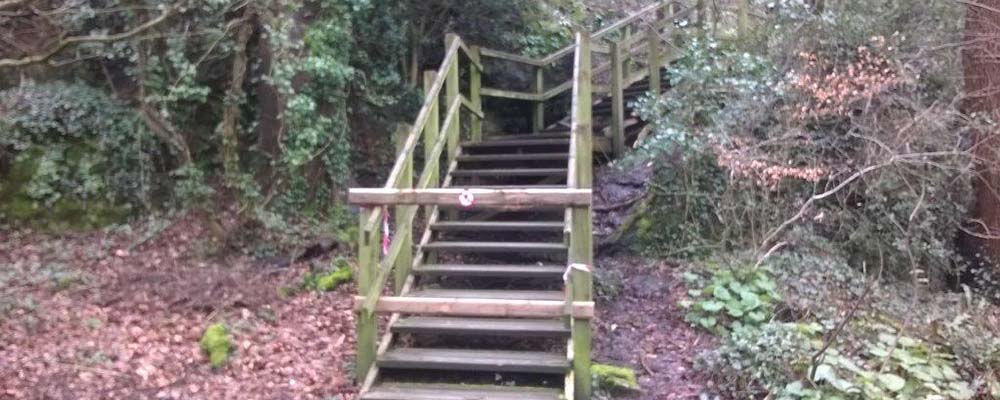
Stairway to Innovation
The Menai Bridge
The Menai Bridge spans the sea between Anglesey and mainland Wales – a monument to strength and endurance. It can be reached several ways from the Anglesey side, but until recently one of them was in sharp contrast to the might of the historic suspension bridge.
For several years the woodland access point was defined by a rustic stairway, not just in the shadow of the bridge, but a shadow of its former self. Green algae smothered rotting treads, posts and handrails set into the wooded slope. Each timber element was slimy to touch, while the dozen steps up to the first level, the seven beyond, and the walkway timbers in between were rickety underfoot.
In function and aesthetics, it was over the hill. Towering tree crowns cast the site in shadow, heavy use by locals and tourists had taken a structural toll, while the sea air corroded metal fixtures. All of these challenges amounted to one big problem for the client, Anglesey Council. The bridge was too far gone to repair, so a replacement was needed, but it had to be special.
It had to look great, function perfectly and, critically, be cost effective. The natural choice, timber, was good, but on this occasion not good enough. Anglesey Council’s in-house architects called for something altogether more rugged – that could withstand harsh elements and heavy use, but lose none of its visual appeal or rustic charm. They found what they needed in Plaswood.
Plaswood looks and feels like wood, but is made in the UK from100% recycled plastic. It is strong, durable, waterproof and maintenance free. Being 100% recyclable, Plaswood also supports the circular economy, an added plus for local authorities looking to promote sustainable products, services and practices across all their departments.
Demand for Plaswood is increasing. Specifiers, architects, landscape designers and construction companies such as MK Enterprises Ltd in Anglesey are reaping the benefits of this sustainable, eco-friendly substitute for non-renewable materials such as wood, concrete and steel. Unlike many plastic wood products, Plaswood is not a wood composite and dates back to the 1980s.
Today it is manufactured by RPC bpi recycled products, Europe’s largest recycler of plastic, at a dedicated factory in Dumfries, Scotland. The company can recycle over 100,000 tonnes of waste a year, mainly from plastic used to bale straw on farms. The finished product is used for construction materials, street furniture and outdoor play equipment. And stairways.
“Plaswood responded to every need of the stairway near Menai Bridge,” said RPC bpi recycled products Director of Berry bpi Mike Baxter. “Its long-life qualities are key for the construction of boardwalks and coastal paths and explain why it is used in wetlands, parks and gardens, town and city centres – anywhere exposed to water or the elements. Demand has hit an all-time high.”
Having removed the wooden structure MK Enterprises Ltd prepared the ground and built the new structure out of plastic lumber sections. Textured decking formed slip-resistant surfacing that will not chip, split or splinter. Galvanised fixings meanwhile are unobtrusive and tough enough to withstand wet weather, while rails are comfortable to the hand and won’t blister in hot weather.
Baxter adds: “The walkway will not wear, rust or degrade with age. But it will add value over the life of the product – ideal for the council. It has a clear edge over wooden structures because it will not rot or require annual maintenance. And though it’s robust, Plaswood can be formed into virtually any shape. Creating posts, treads and a structure suitable for a slope threw up no major challenges.
“We continually seek to improve our performance by setting objectives and targets combined with clear management programmes and initiatives to minimise our impact on the environment. For this reason, the stairway for Anglesey Council is a lower-key but nevertheless fitting neighbour to the Menai Bridge in its pioneering use of material.”
















